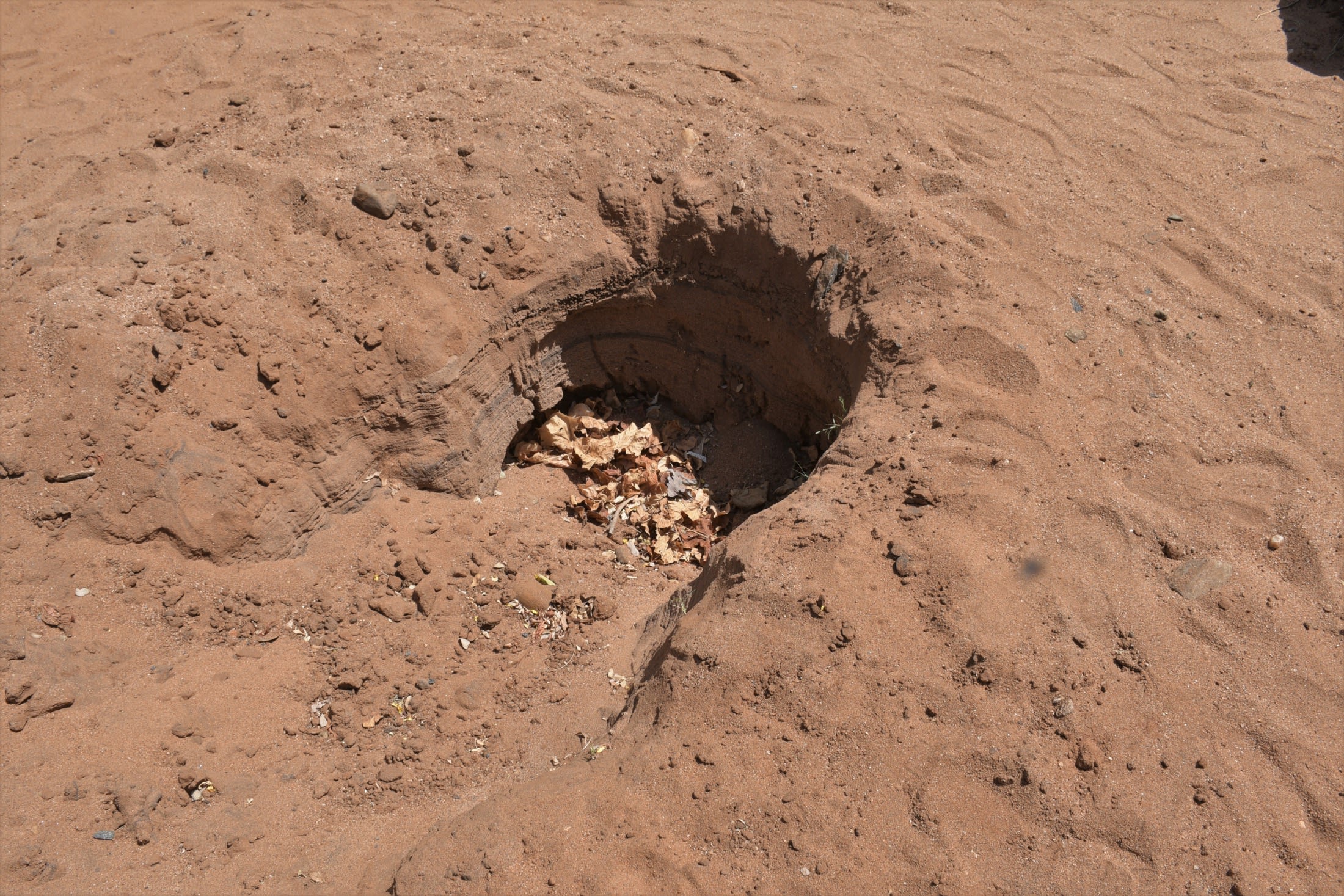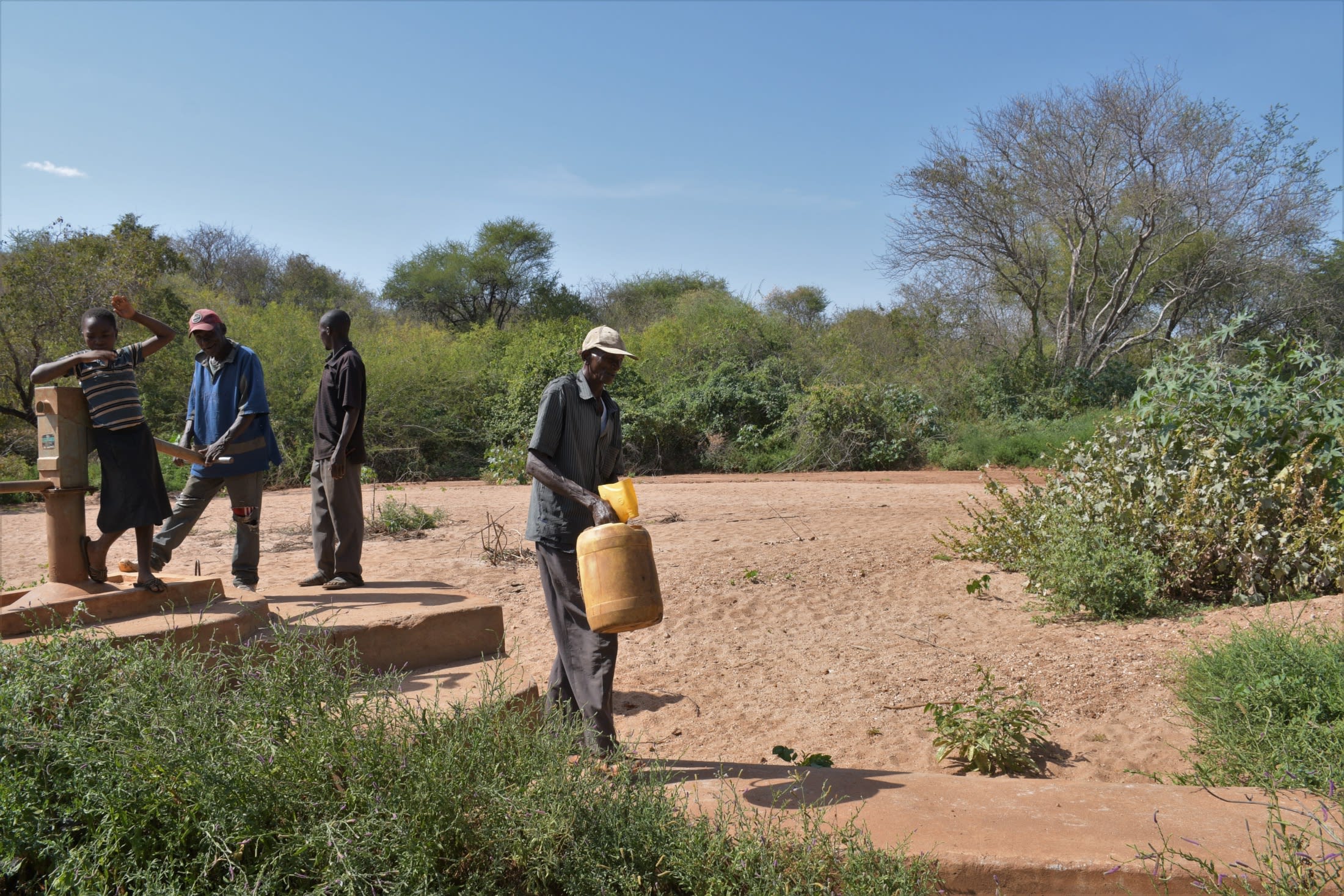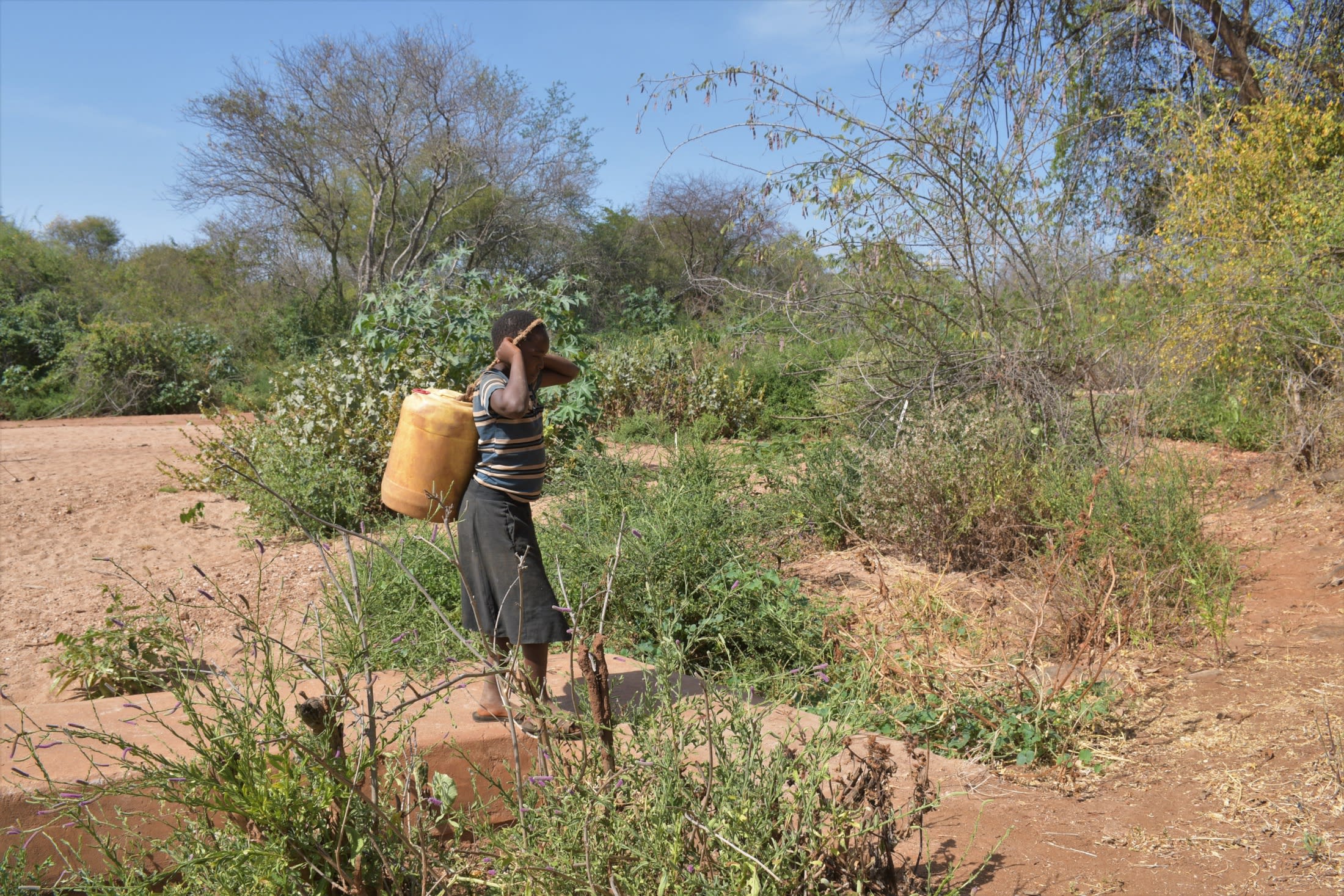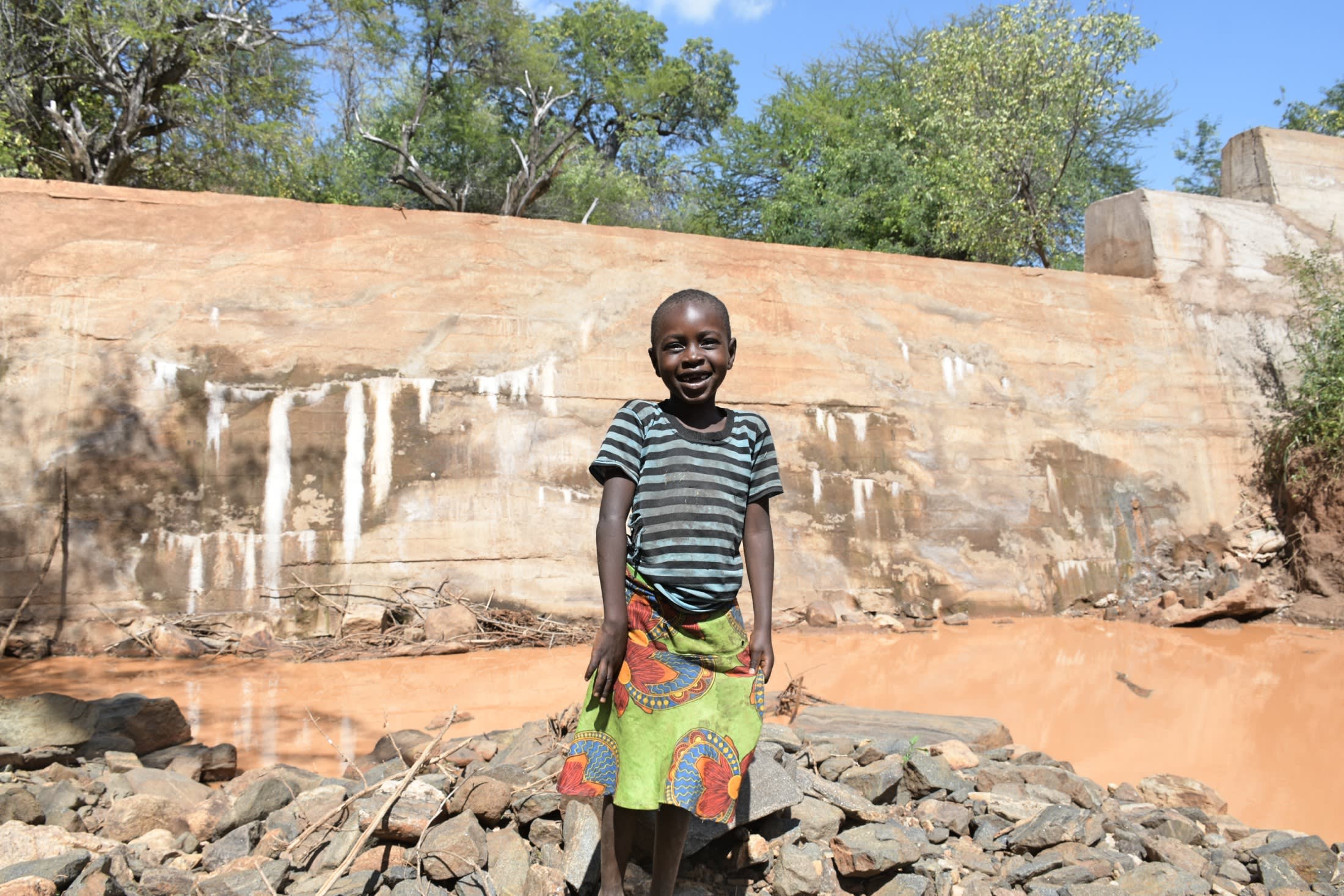Wendano Makiioni's 250 community members struggle to find sufficient water to drink and perform their daily tasks. The water they can collect comes from faraway water points and requires a lot of physical effort, leaving them exhausted and short on time.
"The community depends on scoop holes (one shown in the photo below) and two protected shallow wells as their sources of drinking water. However, the scoop holes quickly dry up due to long drought periods and erratic rainfall," reported our field officer, Alex.

"Residents who live far away have to walk several kilometers to get water from the current water points while carrying 20-liter jerrycans on their backs or donkeys. This is a time-consuming and tedious task under the scorching sun that leaves less energy and effort to conduct activities such as farming or studies for students," continued Alex.
Not only do people have to walk up to an hour to access water, but the water they collect from scoop holes is contaminated, leaving people suffering from frequent water-related infections like typhoid, amoeba, dysentery, and stomach upsets.

"The scoop holes expose me and my family to infections, such as typhoid, stomach upsets, and more, because they are contaminated by livestock [excrement] and dust. My son, Nzangi, developed stomach issues recently, and the other children often complain of similar symptoms as well," shared Benjamin Muthui, a 65-year-old farmer shown above collecting water at the distant well.
"I have to help my family fetch water during weekends or holidays. Sometimes there is no water at home; thus, I have to forego classes and remain at home, like today," said 11-year-old Emmaculate, shown below carrying water home. "I also get tired from the long walks to the distant shallow well or scoop holes and cannot get time to play with friends or study."

"Students do not have enough water to drink at school, and their energy and time are consumed by fetching water. This has led to dismal academic performances and several students dropping out, limiting students in accessing better career opportunities or livelihoods," Alex said.
A new dug well in this community will change the everyday struggle of people to find sufficient water and hopefully give them back their time and energy for other valuable endeavors like working and schoolwork.
Reliable Water for Wendano Makiioni
Our main entry point into this community has been the Wendano Makiioni Self-Help Group, which comprises households working together to address water and food scarcity in their region. These members will be our hands and feet in constructing water projects and spreading the message of good hygiene and sanitation to everyone.
Hand-Dug Well
This particular hand-dug well will be built adjacent to a sand dam project, which will supply clean drinking water once it rains. We have provided the group with the tools needed for excavation. With the guidance of our artisans and mechanics, the excavated well will be cased, sealed with a well pad, and then finished with a new AfriDev pump.
Excavation takes a month or more on average, depending on the nature of the rock beneath. Construction of the well lining and installation of the pump takes 12 days maximum. The well will be lined with a concrete wall including perforations so that once it rains, water will filter in from the sand dam.
This well will bring clean water closer to families.
New Knowledge
These community members currently do their best to practice good hygiene and sanitation, but their severe lack of water has significantly hindered reaching their fullest potential.
We will hold hygiene and sanitation training sessions with the Self-Help Group and other community members to teach essential hygiene practices and daily habits to establish at the personal, household, and community levels. This training will help to ensure that participants have the knowledge they need to make the most out of their new water point as soon as the water is flowing.
One of the most important topics we plan to cover is handling, storage, and water treatment. Having a clean water source will be extremely helpful, but it is useless if water gets contaminated when it is consumed. We will also emphasize the importance of handwashing.
The community and we firmly believe that all of these components will work together to improve living standards here, which will help to unlock the potential for these community members to live better, healthier lives.
We typically work with self-help groups for 3 to 5 years on multiple water projects. We will conduct follow-up visits and refresher training during this period and remain in contact with the group after all of the projects are completed to support their efforts to improve sanitation and hygiene.

 Protected Dug Well
Protected Dug Well
 Rehabilitation Project
Rehabilitation Project






























